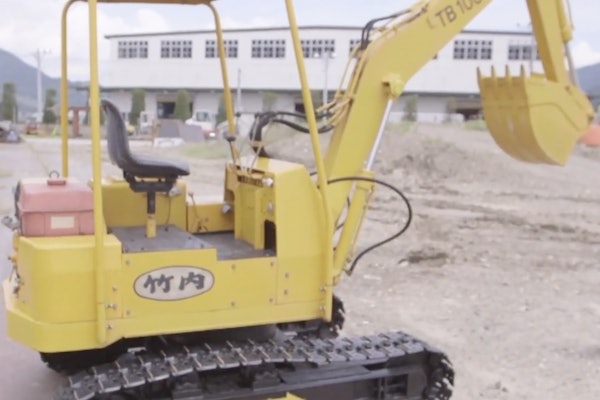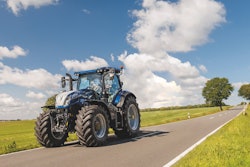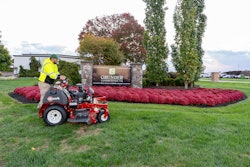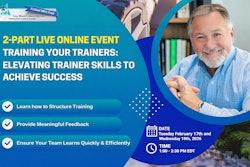The Atlanta Journal-Constitution
The relationship is built on shimmering green grass and big money.
Georgia companies sell turfgrass developed at the University of Georgia, and UGA collects licensing fees and royalties to fund more research. But now a rift has developed over a grass with great profit potential – SeaIsle Supreme.
The University of Georgia Research Foundation, which controls UGA’s intellectual property, plans to export licenses so that foreign companies could grow and sell the grass. Overseas sales would help meet a strong demand for the product and generate new money for the university’s work, foundation officials say.
But two Georgia turf companies with the $25,000 SeaIsle Supreme license fear the new licenses would deprive them of millions of dollars in international sales.
“Here you have something that growers in Georgia have an opportunity to make some money on for four or five years,” said Monte Horne, co-owner of Diamond Turf in Cordele, “and they’re going to turn around and give it to our customers.”
Some lawmakers wonder if the interests of Georgia businesses are being adequately protected.
A bill in the House Higher Education Committee would give Georgia companies first dibs at public university inventions like SeaIsle Supreme. The proposal will be discussed at a committee meeting today.
Released two years ago, SeaIsle Supreme is one of the most sought-after golf course grasses worldwide, tolerant of saltwater and gray water, requiring little in the way of pesticides and fertilizer, and striping beautifully when mowed.
“It was named ‘supreme’ for a reason,” said its creator, Ron Duncan, a former professor at UGA’s Georgia Experiment Station in Griffin.
Eager to get permit
Developers in coastal nations where freshwater is scarce are eager to acquire the SeaIsle Supreme license.
Georgia’s self-proclaimed Sodfather, Phillip Jennings, one of the Southeast’s largest turf growers, has sold the grass to several golf courses overseas. But companies in at least three of those nations – Spain, United Arab Emirates and South Africa – told the University of Georgia Research Foundation they want to grow the grass.
Jennings said if licensing spreads outside the United States, he could lose $5 million in sales in the next two years. SeaIsle Supreme represents 20 percent of his business.
“Why would you export our technology to other countries?” he asked. “Georgia needs every dollar of export it can get.”
The foundation says overseas money helps fund creative work. “Licensing income is invested back into new research and product development at UGA, producing still more and better cultivars for Georgia companies to market,” foundation respresentative Terry Hastings said.
But Jennings said as long as domestic producers can meet demand, foreign companies ought to be prohibited from buying the license.
Jennings Turf Farms grows 13 different grasses (not all from UGA) on 3,500 acres, and employs 200 people in the Soperton area, 21/2 hours southeast of Atlanta. Three Super Bowls, including this year’s, were played on Jennings’ turf.
When Jennings makes an overseas sale, sprigs are flown to the country and the grass is grown there under supervision.
Last month, the Sodfather voiced his concerns to a House committee, and Rep. Jeff Lewis (R-White) and others were troubled by what they heard.
“Here’s the latest, greatest agriculture … product out there,” Lewis said, “something that gives us a competitive edge here in Georgia, and we’re licensing it to other countries.”
Rep. Mike Cheokas (D-Americus) is sponsoring the legislation that would require the University System to give Georgia companies first crack at university inventions. House Bill 474 does not specifically address turfgrass, but it goes to the issue of whether Georgia businesses are allowed to take full advantage of university work.
“We’re trying to determine the correct course of action,” Cheokas said. “If we fund research into something, we want to make sure this research gives opportunities to the citizens of Georgia to get jobs.”
UGA’s inventions span medicine, health and agriculture, and include a dry-eye drug, healthier cooking oil, efficient livestock cloning and ornamental plants. Georgia Tech, Georgia State University and the Medical College of Georgia also do research.
Each institution has an intellectual property committee that establishes procedures for profiting from inventions, and the University System gives U.S. companies the right of first refusal to those licenses. The current system works well, said John Millsaps, University System spokesman.
So far, the foundation has sold SeaIsle Supreme licenses to six U.S. growers.
The foundation says exporting licenses only after the grass has been available to domestic companies for a year and charging overseas buyers double the royalty rate helps Georgia businesses. Foreign growers also are forbidden from selling the grass to other countries or in the United States.
Significant revenue
UGA inventions produce significant revenue. Since 2002, the foundation has collected $44.8 million in fees and royalties.
Jennings said he paid $120,000 in royalties last year from sales of SeaIsle Supreme.
Companies in Brazil, Thailand, Australia, South Africa, Spain and United Arab Emirates want the SeaIsle Supreme license, Hastings said.
The volume of requests indicates “demand is not being met,” she said. “Without such licenses, foreign customers are obtaining turfgrasses from our competitors.”
But Jennings said domestic growers can meet demand. If his overseas sales wither, he said, other Georgia employers also will lose out, including Delta Air Lines, which transports grass sprigs.
Horne, the Diamond Turf owner, said he will spend $500,000 this year growing 100 acres of SeaIsle Supreme, even though he fears unscrupulous foreign companies with the license could ruin the market by exporting the grass in violation of UGARF’s conditions.
Rep. Bob Smith (R-Watkinsville), vice chairman of the House Appropriations Committee and a co-sponsor of Cheokas’ bill, expressed similar concerns. Smith said he’s trying to decide whether sharing SeaIsle Supreme with foreign companies is a good idea.





